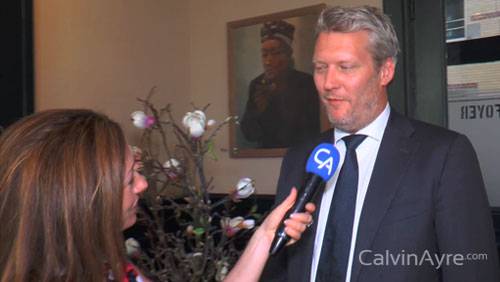In this interview with CalvinAyre’s Rebecca Liggero, Justin Franssen of Kaliff Katz & Franssen Attorneys at Law shares the ups and downs of the gambling industry in Netherlands.
Gaming stakeholders are finding themselves dancing to the dizzying beat of the Dutch regulation’s cha-cha nowadays.
First, operators took a back step when a bill to regulate online gambling in the Netherlands is put in limbo after legislators failed to vote on it before the summer recess.
According to Justin Franssen of Kaliff Katz & Franssen Attorneys at Law, the passage of the important online gaming bill has drawn yet another setback after the parliament failed to put the legislation on its agenda for June 20. He expressed concern that the bill will be shelved until after the national elections on March 2017.
“As you know it takes forever in the Netherlands. We are really behind all of the other European countries. We’re supposed to have a bill passing in parliament couples of week back that has been delayed, and has been delayed [again],” Franssen told CalvinAyre.com. “I think, the concern here is it is going to be pushed back after the summer recess and we will have elections. So there is a likelihood, there’s a concern I should say that essentially the whole thing gets be pushed back in the next government.”
Franssen, on the other hand, said that the Dutch gambling industry has made a big stride after its government approved the privatization of its four state-run casinos. According to Franssen, the government announced its plans to essentially split up and privatize Holland Casinos, which has 14 properties.
The Dutch government, which monopolizes the casino industry, will soon relinquish four of its properties and offer licenses to private casino operators, the lawyer said.
“So ten venues will remain Holland Casinos, they will continue the brand Holland Casino, four of these properties will be relinquished, will have to be relinquished I should say, either be put on the market, and it will be to make licenses, so licenses without any properties attached to it or personnel,” Franssen said.
The Dutch gaming industry, however, took another step backward when the gaming authority in the Netherlands rejected the application of service provider Lottovate for a charity lotto, citing a policy that extends government licenses until the end of 2016.
Recently, gaming operators are preparing themselves to take a step forward after a court in Amsterdam struck down the gaming regulator’s ruling on Lottovate and ordered the state to come up with a new decision in six weeks’ time.
“Basically, the court said that it can’t be done. You cannot limit the amount of charity license to just to three, one, four or five, and the gaming authority was using a policy rule which basically says that well we are going to extend government licenses until the end of 2016 without proper any proper justification,” Franssen said.
As they await for the next move of Dutch regulators in the case of Lottovate, gaming operators are in a wait-and-see mode on whether the industy will take a step forward or move another step back.
“We are holding our breath on that one,” Franssen said.
